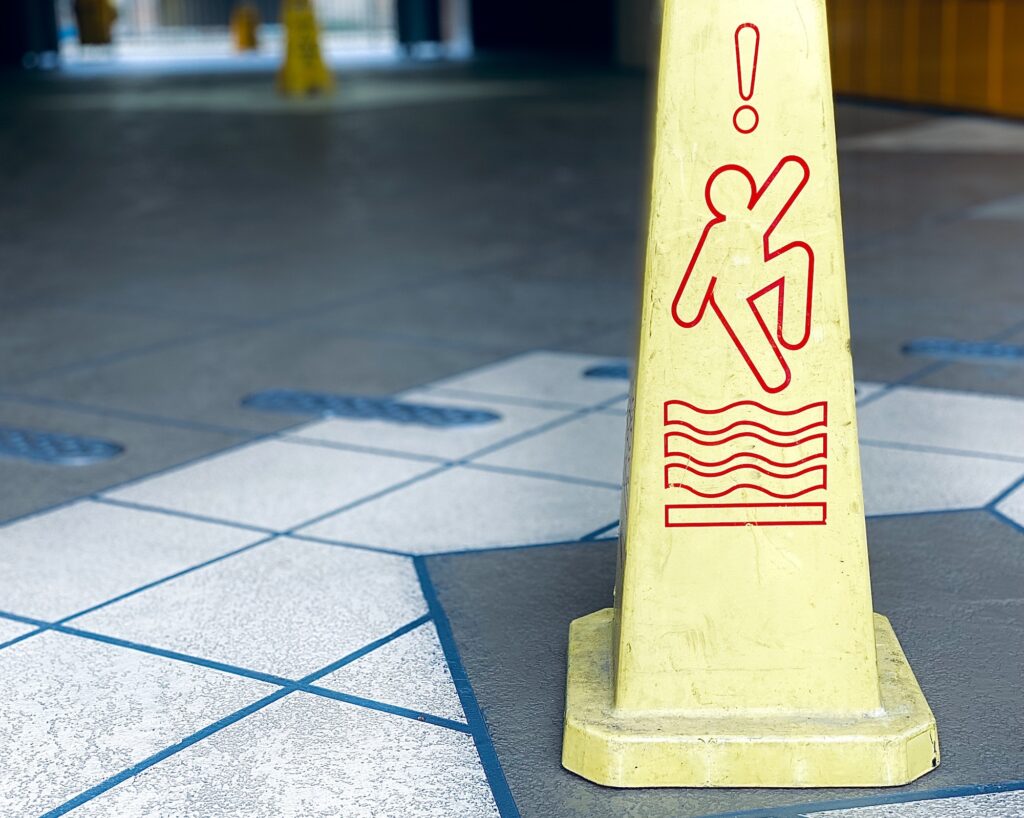
Premises liability cases involve a personal injury sustained because of a defect or condition on the premises of another person or business. Problems such as defective staircases, defective handrails, defective stairways, defective metal gratings, dangerous holes, broken steps, broken concrete, slippery floors and trip hazards pose serious risks to invited guests who have no knowledge of the defect.
Injuries from premises defects can also be devastating ranging from brain injuries, to broken bones, to internal injuries which require surgery. Quadriplegia and paraplegia can also be caused by back and neck injuries from premises defects.
Most buildings and premises are governed by building and safety codes which require that the property meet or exceed certain standards. Often, to save money, building or landowners fail to comply with these codes thereby posing serious safety hazards. When these codes are updated to address safety concerns, premises owners often fail to bring their property up to standard. Premises experts such as architects, engineers and safety personnel are usually required to examine the premises to expose these code and safety violations.
Moreover, previous complaints about the defective premises often go unaddressed until litigation is instituted. Investigators and other experts are often necessary to research the prior history of a property regarding these complaints.
The type of property insurance and the relationships of the various owners and tenants of the property are also issues to consider in a premises liability action. Finger pointing between mutual landowners or between a building owner and lessee is common. Usually, their agreements are important in determining who has the primary responsibility for the defective condition of the property.

